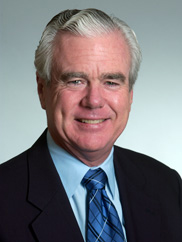Site Search
Insights

November 20, 2012
A new series of case studies published by culture-shaping firm Senn Delaney demonstrates the strong link between creating an agile, high-performance organizational culture and desired business results. Featured case studies include more than a dozen companies from several industries and include Atmos Energy, T-Mobile USA, The Ohio State University, Piedmont Natural Gas, USAA, Yum! Brands, Miami Children's Hospital, Nationwide and more.
View and download the culture case studies
“Every company has a culture, for better or for worse. Companies with the most agile, high-performing cultures far outperform their competitors,” according to Jim Hart, Senn Delaney President and CEO of Senn Delaney. “The impact of culture on performance can be measured and is significant. Culture can account for up to half of the difference in operating income between two organizations in the same business. A recent study on core beliefs and culture by Deloitte found that 94% of executives and 88% of employees believe a distinct workplace culture is important to business success. The survey reported that 84 percent of employees and 83 percent of executives believe having engaged and motivated employees is a top factor contributing to company success."
Culture is the top strategy to enable all others
Our work with clients over the past 35 years reinforces these findings, states Hart. He notes that companies that embark on a process to shape their culture do so with very specific business goals in mind and challenges they need to overcome. And those who have the most success determine that the culture is the top strategy that will enable all others.
Key drivers for embarking on a culture transformation process in companies are not always purely financial, but in the end, they do create a distinct competitive advantage, Hart notes. “To borrow a great analogy from Harvard Business professor and author James Heskett, running an organization on financial numbers alone is like driving while looking in the rearview mirror. Organizations that wait for a significant downturn in their financial measures, such as growth and profit, to signal the need for change are doomed to fail because those measures will have declined long before financial results begin to show it.”
“The CEOs and senior leadership teams in these case studies determined that their organizations needed a culture shift for several reasons,” states Hart.
Some examples
Atmos Energy has focused for years on creating, embedding and nurturing the AtmosSpirit culture for and long-term health and success .
First Horizon National Corporation sought to create an agile culture to succeed in a rapidly changing environment as part of a turnaround strategy.
In Europe, Iglo Group sought to integrate a major merger and create a competitive, collaborative culture to enable growth.
Miami Children's Hospital went through a culture transformation to prepare for transformative change and improve performance.
Nationwide Children's Hospital created a ‘one team' culture to achieve national eminence.
T-Mobile USA used the culture as a means to become the best in customer service.
The Ohio State University wanted to create a model culture to move from excellence to eminence.
USAA sought to create a client-focused culture tied to their higher purpose .
Yum! Brands created an iconic recognition culture to spur global performance.
WellPoint needed to create a one-company culture of innovation following its merger with Anthem .